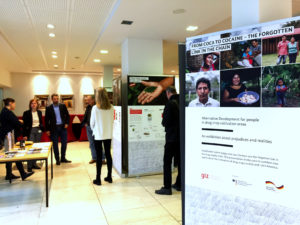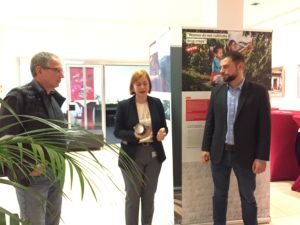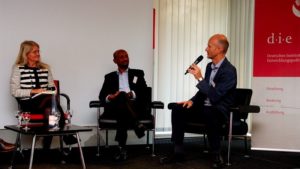

Andrea Cordes and Jacqueline Götze have been elected as new equal opportunities officer and deputy equal opportunities officer at DIE.
Andrea Cordes has worked at DIE as a project coordinator since April 2017, initially for the Managing Global Governance (MGG) Programme and now for the Research Programme ‘Transformation of Political (Dis-)Order: Institutions, Values and Peace’. As a former project coordinator of the German Committee of UN Women, Andrea Cordes is very familiar with questions of equal opportunities.
Jacqueline Götze has been a researcher with the Sustainable Development Solutions Network Germany (SDSN Germany) at DIE since January 2019. Together with Andrea Cordes, she wants to work on the topics of gender mainstreaming and diversity management at DIE.
The term of office of Dr. Tatjana Reiber and Dr. Eva Dick as equal opportunities officer and deputy equal opportunities officer ended in November. DIE thanks both of them for their voluntary commitment that aims to put forward relevant measures for an institute that stands for equal rights, fairness and tolerance. The institute looks forward to the cooperation with the newly elected successors, Andrea Cordes and Jacqueline Götze.



